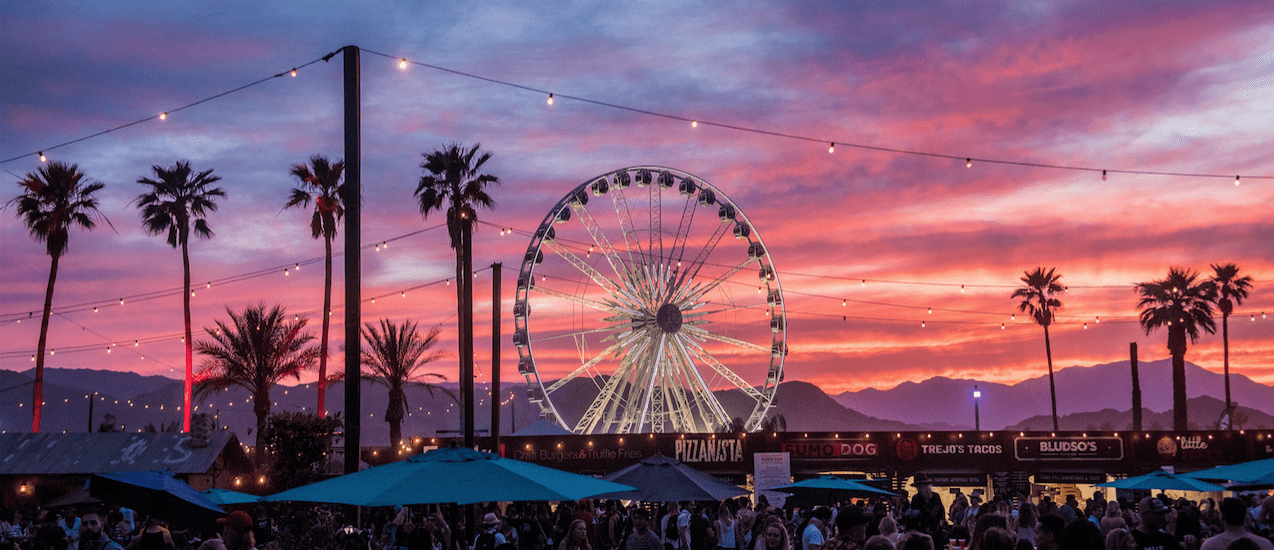The festival Coachella is being headlined by queer artist Frank Ocean. As the owner of Coachella has repeatedly expressed homophobic viewpoints, editor Neive McCarthy explores the question of why LGBTQ+ artists attend.
Coachella is for many music lovers a far-away vision of paradise. However many also see it as long being synonymous with the height of white privilege and there are numerous instances of uncomfortably problematic on-goings. From the abundance of rich white-kids with a vile penchant for cultural appropriation, the rampant elitism, to the fact it glorifies and exploits a district which is actually incredibly impoverished, there’s no avoiding that more often than not, the renowned festival has found itself in hot water.

Undoubtedly the crux of this, however, came when it was revealed that, Phillip Anschutz, the head of major conglomerate AEG whose Live division owns the festival, was known to be funding aggressive anti-LGBTQ+ organisations, and donating $1 million to Republican members of the US Senate who are notably anti-LGBTQ+, anti-abortion, and/or anti-gun control. It goes without saying then that Anschutz’s morals are largely in question; for such an enormous festival, this, of course, raises a major issue when it comes to supporting the festival, and what Anschutz stands for. Initially, it seemed that the call to boycott Coachella fell more to festival-goers, implored to forego the star-studded weekend of their influencer dreams. Of course, there was little impact, with Anschutz and Coachella having persisted relatively unfazed by their criticisms.
The question, however, lies in how exactly thousands and thousands of artists and fans alike can so blatantly ignore the issues embedded in the very nature and conception of the festival. More and more over recent years, it has become apparent that these problems have been completely blindsided, and although mostly frustrating, it’s absolutely baffling too.

The appeal of Coachella 2020 is starkly apparent. Just one look and your mind is already wandering to how magical it would be, should you have that spare $429 in your bank (at least). Hearing the opening notes of Frank Ocean’s ‘Nikes’, surrounded by your friends, with the backdrop of Californian pink-tinged skies sounds like pure, unadulterated bliss.
At least until you remember that your money is funding the exact antithesis of what you, and the artists playing, appear to support. Enter the baffling part of this entire situation: Frank Ocean, set to close the festival with a rare headline set, is an openly queer man, so why exactly is he playing at a festival that the funding of which could eventually go to organisations that would inhibit him loving who he wants?
Of course, for Anschutz to sign Ocean for a headline set makes perfect sense – illusive and almost impossible to catch live, just the mere mention of ‘Frank Ocean’ would have even more people flocking to the Coachella Valley. Yet, does this not only further testify how Ocean doesn’t need to play here? One of the most in-demand artists of our times, it’s safe to say there are very few festivals who wouldn’t jump at the chance to have him on their line-up. Why, then, of all festivals, would such an artist choose to tie his brand so closely to an organisation that opposes his freedom?
The closer you look at the Coachella line-up, the more acts you notice who, usually, will sing for equality until the cows come home, but suddenly find themselves mute when it comes to signing the contract to play Coachella. To an extent, it makes sense: Coachella is one of the biggest festivals in the world, and to play it is a major accolade, and for many artists, is incredibly career-defining. In a sense, it seems hard to turn down. But is the prestige and honour the festival provides really enough to justify ignoring your usual moral values?

Politically fused, riotous artists like IDLES and Slowthai, who are renowned for being outspoken about many of these issues, still find themselves on the bill, suddenly silent. An abundance of queer icons, from MIKA, Kim Petras, Charli XCX, Marina and Carly Rae Jepsen, all find themselves on there too. Is Coachella just excusable from its inherently uncomfortable roots? After Ariana Grande’s headline set last year, she left the stage with a projected rainbow on screen.
Some might argue that this is an attempt at using the unignorably major platform that Coachella provides to try and balance its problems. Waving one flag will not inhibit the money that will go straight to Anschutz and these organisations in the slightest, so surely to truly make a statement, boycotting Coachella would be much more effective?

To continue ignoring the undercurrents of homophobia and elitism that Coachella harbours allows them to proceed – it may be one of the biggest festivals in the world, but that doesn’t mean we can suddenly condone what it stands for, and some of the most popular artists in the world shouldn’t be condoning this either.

